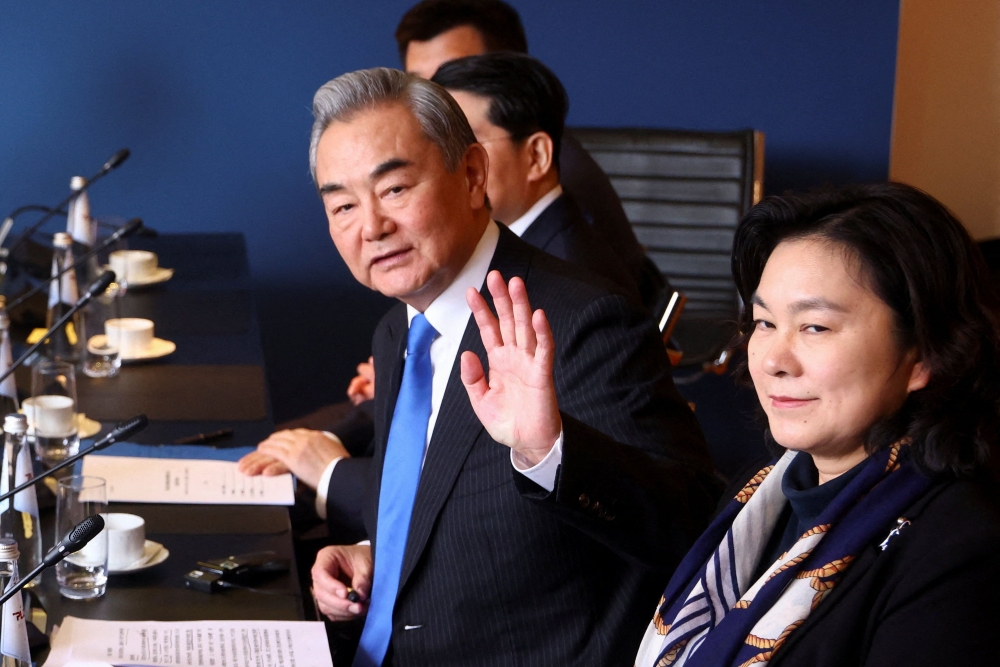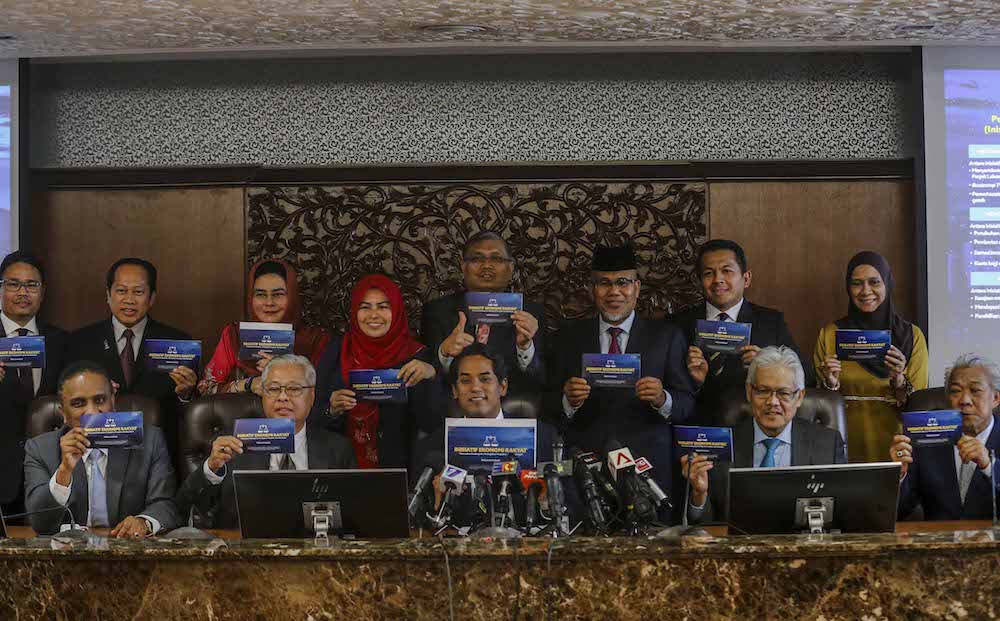KUALA LUMPUR, Nov 1 — Barisan Nasional’s (BN) Shadow Cabinet presented its alternative Budget called the “People’s Economic Initiative”, in which it projects RM247 billion in revenue with the introduction of new taxes and the reimplementation of the Goods and Services Tax (GST).
Shadow finance minister Khairy Jamaluddin presented the initiative in the Parliament building today, and proposed that the GST be reintroduced at a rate of 3 per cent.
“The GST is a more efficient form of taxing that reduces leakages, leakages that can happen with the use of the Sales and Services Tax (SST), something the current government themselves have admitted.
“With the implementation of the GST, it significantly reduces the chances of a black economy or potential leakages,” said Khairy during a press conference this afternoon.
Other new taxes include a “soda tax” of 25 sen levied per litre on soft drinks, a capital gains tax for those with net annual incomes exceeding RM10 million and a 6 per cent remittance tax for every foreign money transfer.
“Official data showed RM34.75 billion flowed out of the country in 2015 after being sent out by foreign workers.
“At a 6 per cent rate, the government can expect to collect up to RM2.09 billion in revenue through this remittance tax,” he said.
The initiative also proposes a carbon tax for tax companies emitting at least 25,000 metric tonnes of greenhouse gases at a rate of RM10 for every metric tonne of gas.
Also included in the initiative is a plastic bag tax that would collect 15 sen as federal tax revenue from the 20 sen charged per bag.
BN is also proposing the formation of a Fair Works Commission to ensure wages given to employees are benchmarked against top management pay.
“This commission will also take into account many related factors when suggesting their wage structures, including the industry and geographical location of those involved.
“With the introduction of this commission, there will be no more national minimum wage as the commission will suggest a rate based on the industry, location, sector and company involved,” said Khairy.
He added the initiative was driven by three main points: A desire to boost development, facilitate an increase in the distribution of wealth and the need for it to be “future proof”.
Finance Minister Lim Guan Eng will table the Pakatan Harapan government’s maiden Budget tomorrow.




















